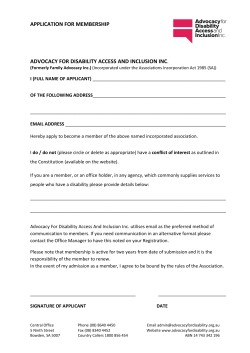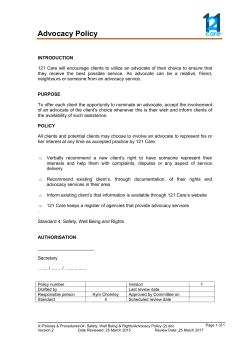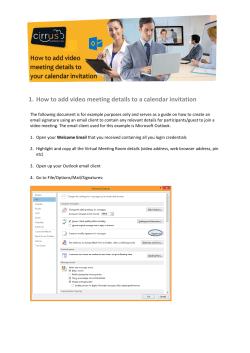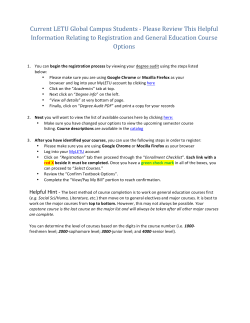
2015 Plan - The Mozilla Blog
=====The Mozilla Advocacy 2015 Plan===== Mozilla’s mission is to build an Internet that is open and accessible to all. We achieve this mission by building great products that help people take control and explore the full potential of their online lives, and by empowering people with technology and know-how to advance the open web. images source: Free Press We are at a pivotal moment in the movement to protect the open web. On the one hand, in the next 10 years, the open Internet will become a vital resource in the daily lives of five billion people. On the other hand, the web is a contested space, with various actors – from governments to the commercial sector – seeking to exert control, making the web less free and less open. The role of Advocacy at Mozilla is to empower people to create measurable changes in public policy. This includes changing the policy, market, and cultural norms so that the web remains an open resource with a level playing field for all. A core part of achieving this goal is ensuring that people see themselves as citizens of the web, empowered to shape and influence public policy decisions. We have three key advocacy strategies to advance and protect the open web: Mozilla 1 1/Leadership Development Grow a global cadre of leaders – activists, technologists, policy experts – who advance the free and open web. We are cultivating leaders who promote openness, innovation, and opportunity – the core values of our mission and manifesto – in many sectors and communities of practice, such as news and science. For the policy sector, this is vital, especially as there is a need for more tech expertise to inform and influence the policymaking process. At the heart of our strategy is the Ford-Mozilla Open Web Fellows Program. This program places emerging tech leaders in civil society organizations for ten months of immersion in public policy. The program is an on-the-ground leadership learning lab where the community is the classroom and the objective is to protect the open Internet. The Fellows will work on issues that threaten the openness of the web – net neutrality, privacy, security, mass surveillance, and more. This year (our inaugural year), we’re thrilled to have six terrific host organizations: the ACLU, Amnesty International, APC, Free Press, New America Foundation’s Open Technology Institute, and Public Knowledge. Beyond the demand for this type of expertise in civil society, it is clear that there is interest in participating in these types of leadership programs among the talented tech corps. As proof, our application phase drew in more than 550 applications from nearly 90 countries. The Year Ahead: Our plan is to kickoff the 2015-2016 class of Open Web Fellows in June with an immersion bootcamp in Washington, DC. We’ll keep the Fellows engaged as a cohort through bi-weekly calls and ongoing coaching and training. They will also work in the open, blogging about their experiences and sharing the tools and campaigns that they develop. Mozilla 2 2/Enable Advocacy Community Assist, grow and enable the wider advocacy community. Enabling community participation and involvement is a central part of our Advocacy approach. Over the past few years, it has become clear that we are at a tipping point in the movement to protect the open web. And right now – with progress such as Marco Civil in Brazil and net neutrality in the U.S. – that movement is gaining momentum. Our movement is winning. There are a few different elements to this strategy: • Contribute to the movement’s coalitions and base. We participate in initiatives driven by the broad coalition of organizations that advance key efforts, such as the Web We Want and Battle for the Net. • Bring resources into the community. We are a participant in the important Net Gain Challenge that aims to increase philanthropic investment in protecting the open Internet. • Provide thought leadership, through efforts like our Cybersecurity Delphi, a research initiative that will set a foundational affirmative agenda for security online, and through policy positions such as ‘Equal Rating’ our take on how to address zero rating models and net neutrality throughout the world. • Web literacy education, through educational initiatives such as Smart On, Shape of the Web, and issue-oriented teaching kits. Mozilla 3 The Year Ahead: Mozilla Advocacy is working on a few key initiatives in 2015 to empower the community to participate in policy and advocacy: • • • Mozilla Advocacy Community Discourse – We recently launched a discussion platform for the Advocacy community. This discussion platform will enable people to share their perspectives and organize together, both globally and on a local level. We also see this community site as an area for nonprofit organizations to offer job and volunteer opportunities to people with technology and organizing expertise. Advocacy Task Forces – We are working with regional leaders – through Mozilla Reps and Mozilla Clubs – to create region-specific groups that can proactively educate on policy-oriented issues and help organize in response to policy threats to the web. Request for Policy Support – We believe that the community plays a vital role in creating an early warning system for emerging threats to the open web. We will prototype a new process that will enable community members to raise local policy issues to our attention. This new process will give us insight into what’s happening around the world, enabling us to support the community when Mozilla’s voice will have an impact on the issues. Mozilla 4 3/Empower People to Take Action Run issue-based campaigns to grow mainstream engagement with Mozilla and open web issues. Earlier this year, we shared in the historic victory as the U.S. Federal Communications Commission (FCC) voted to strengthen net neutrality. As part of our campaign, more than 370,000 signatures were generated and 23,000 calls were made to Members of Congress and the FCC in support of net neutrality. For many of the people who made calls, this was the first time they had ever contacted a Member of Congress. Policy leaders cited public pressure as a major factor in this victory for the open web. For Mozilla, it was also an affirmation of our community’s interest in advocating for the open web. “I appreciate your giving me this opportunity to make a difference in an issue of such great importance to me and everyone who uses the Internet. You have encouraged me to exercise the valuable rights of my citizenship. Thank you for your efforts.” -‐-Mozilla Community Member who called the U.S. Congress supporting net neutrality. Mozilla 5 When Mozilla engages hundreds of thousands of people to take action, we accomplish three very important things: • People learn about Mozilla’s mission, and we can start building long-term relationships with them. These are new supporters and potential users of Firefox products as well; • As our pool of supporters grows, those who are highly engaged will emerge and take on more responsibility – like volunteering or leadership; • There is strength in numbers, as net neutrality proved. The larger our numbers around the world, the more power we can exercise at a moment’s notice in defense of the open web – anytime and anywhere. The year ahead: Our plan is to continue identifying issues with mainstream relevance to engage people. We have an active campaign on surveillance reform in the U.S. and we are monitoring policy developments globally. Building capacity in grassroots digital advocacy will continue to be a priority for Mozilla. CONCLUSION We are at a watershed moment for the open web. Within 10 years, there will be five billion people online. Mozilla’s mission – to build an Internet that is open and accessible to all – is more important than ever in maintaining the Internet’s potential for good, and for keeping it as a global, shared resource that enables innovation and opportunity for everyone. Mozilla needs to continue empowering people with technology and know-how so that they can realize the web’s full potential. We need to build long-term relationships we hold with people to advance the open web and to ensure that the next billions that come online know that they are citizens of the web. Success of our mission depends on participation and inclusivity, and cultivating the next generation of leaders in policy & advocacy. More than a decade into the movement, Mozilla is committed to building the leaders and the community to advocate and protect the open web. Mozilla 6
© Copyright 2025











